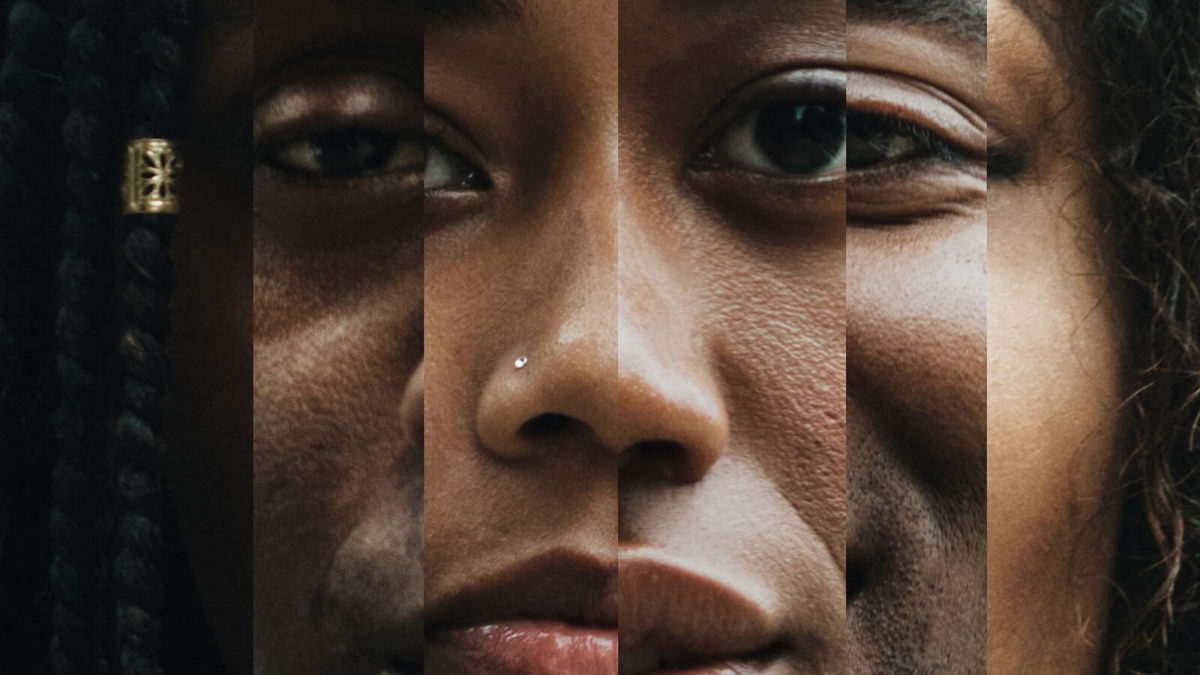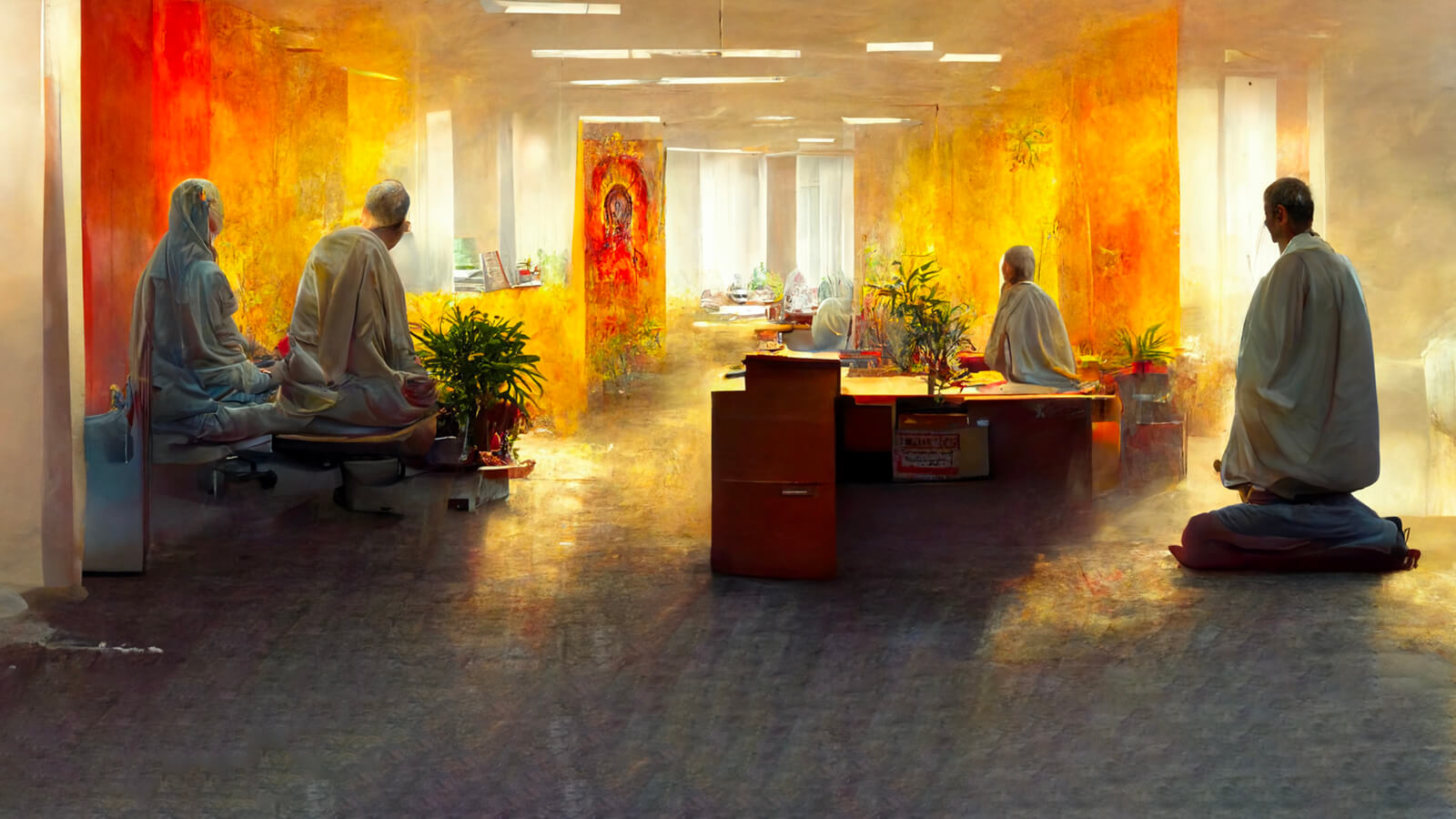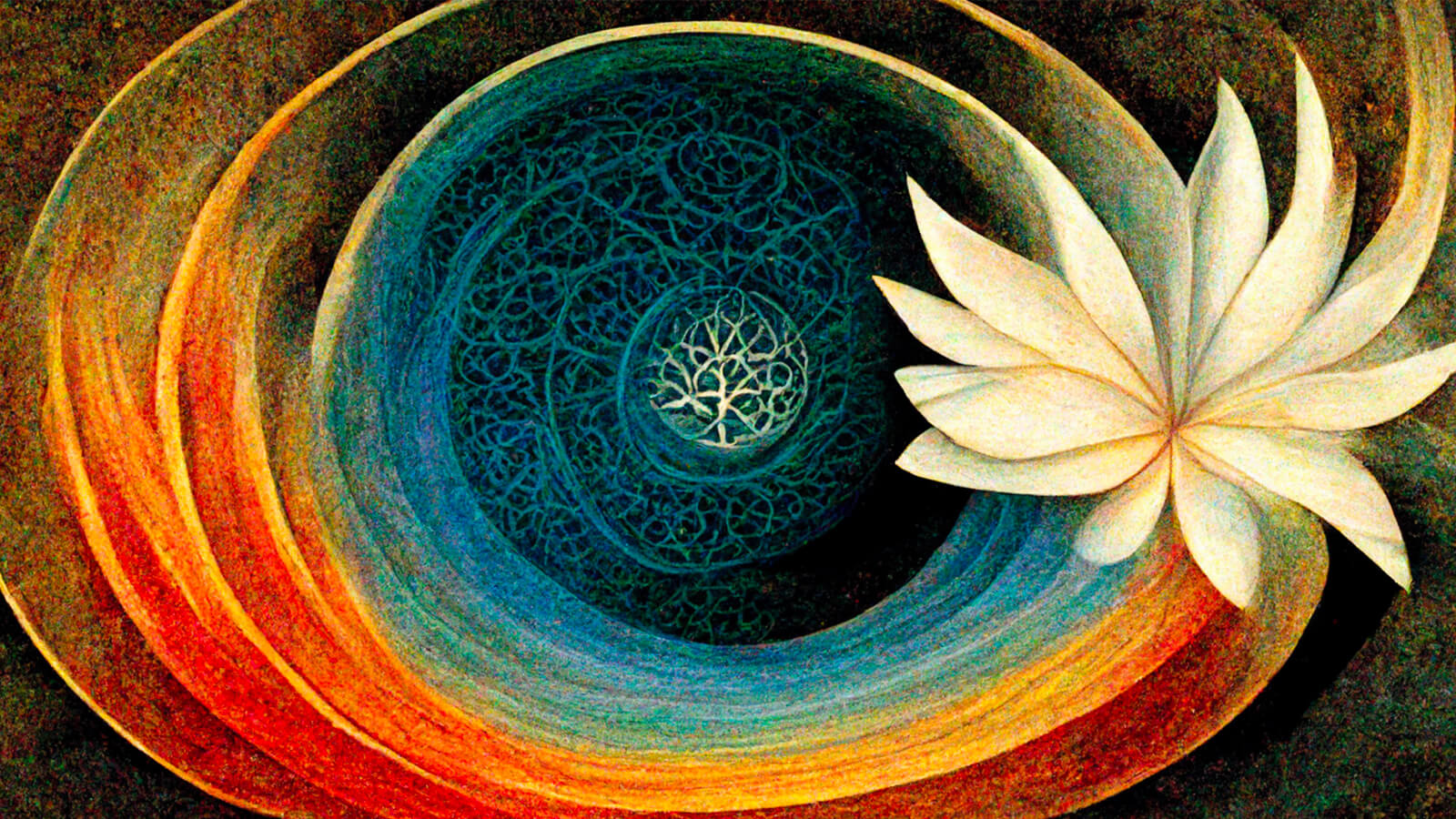Become a supporting member to watch the full conversation
Humanity is entering the Transformation Age, a new era of human civilization, with Integral Consciousness rising at its leading edge. Our members don’t use Integral Life as just another media subscription they use weekly or discard. Instead, most stay with us for years, using Integral Life to learn Integral Philosophy and build an integral mind slowly, methodically and when they need it. We’re here to help you shape the future that’s emerging no matter where your life takes you.
Get Full Access For $1 (30 days)* Or explore all membership plans → * Trial price for the first 30 days, then $20/month. Cancel or switch plans in 2 minutes at any time.hat do we do when experiences of bias arise within our practice, or even within our practice community? What is the best way to verify whether these biases are real in the first place, and overcome them when they are?
In this special episode of The Art of Practice Lisa and Corey talk to Aneesah Wilhelmstätter, our special guest (and new Integral Life Practice leader!), about her own perception of bias that she experienced in one of Lisa’s practice sessions. Because we are all in practice together, and because we are all essentially “teachers teaching teachers” at every step, we decided to have this conversation out in the open in hope that we could help role model some better, more authentic, more anti-fragile approaches to practice, enfoldment, and conflict resolution. What followed was a tremendously heartful conversation that strengthened our mutual commitment to bring more empathy and understanding to each other’s experience.
Transcript Excerpt
Corey: So today we’re going to be talking about overcoming bias in practice. I’m really going to be curious to see how this conversation unfolds, and really what makes this conversation a little bit different than some of the typical, let’s just say “green altitude” conversations about race and bias and things like that that we see all around us. I’m going to be really curious to see what comes up for us in this space here. And my job here is basically going to be just to sort of observe you guys and watch you guys enfold. I was joking to Lisa before the show that “you know it’s an integral conversation when there’s a white guy sitting in the middle of it.” So I want to presence that bias, and do my best to actually kind of stand back and just hold a space for you guys to have a wonderful conversation together and to enfold. So I’m really looking forward to see where this goes.
Lisa: Thanks, Corey. Why don’t I set the stage a little bit? So, I offer a series actually called “Ethical Power: Owning and Wielding Power for Good”, and this last week we had a session where I talked about privilege as power. And the interesting thing about this particular session is, we’ve talked about how our power from a variety of perspectives before, but this was the first time that I had gone deeper into privilege — and not just “white privilege”, but privilege of all sorts, privileges that we enjoy just because we are who we are. And in that session, I really challenged participants to examine the various types of privilege that they have, whether they are consciously accessing that privilege or not, and also to think through how they’re accessing and using that privilege, because the truth is that we do have that privilege, whether we choose to use it or not, and I think that there’s an opportunity for us to actually use it on behalf of a greater good. I also challenge participants to be in inquiry around this, and made a statement that we should all be doing better and being better.
So shortly after that session I received some strong feedback from Aneesah about how I could do better and be better! And I immediately reached out to her, because I wanted to know more. Because again, as a practice leader, I am in practice, and this is not a subject that I [usually] teach. It’s not a subject that I normally venture into. And yet, it’s important. I believe that we all have the courage to have these brave conversations, and I want to be better and do better. And so I invited Aneesah to have a dialogue with me in public, so that we could all learn from this. So Aneesah, I actually I want to kind of unpack some of the feedback that you gave me.
Aneesah: These things can happen by accident, right? I noticed several things in my experience were building, and then when something like that happens, I then read it in the framework of the assumptions that have been building. And if it seems to fit the picture, it validates the thoughts I was having. So that is something I also need to take into consideration, that when you are managing a lot of things, you’re taking in a lot of information that you need to process while you’re presenting the material in a certain way.
Lisa: So what I love about what you’re saying right now is that you’re actually highlighting the way that you interpreted some of the things that happened in that session, and your experience may not have been what I was intending. And yet it’s interesting to me, because that’s how we all operate all the time as human beings, right? What’s essentially happening anytime that we’re relating is that we are either making that connection where we both feel validated, heard, understood, or we are missing that connection for a variety of reasons. And sometimes for reasons that we think is one thing, and might be something else. And what I love is that you reached out, and you actually said something. Because this is, I think, one of the most important things that we can do as a practice community — when we see something that doesn’t feel right, that we actually, in an open way, we approach each other and say, “Hey, wait a second, something’s not right here.” And I have a lot of respect for the fact that you did that with me. And I want to thank you for that.
Aneesah: I would like to echo what you said, and I think it’s useful for all of us going forward is, “when you see something, say something.” I think it’s a nice mantra to have. And yes, you might not be right, but it’s not about being right. It’s about wanting clarity and understanding.
Corey: Yeah, that’s the integral move, I think — actually having enough curiosity to try to engage. Like, “Hey, this is an experience I had, I want to check this with you, because it’s entirely possible that I’m having this experience because I’m expecting bias. And therefore, when things kind of line up with my expectation, it feels like bias.” But it’s interesting how accusations of bias can sometimes come from expectations of bias. And when two people actually are able to demonstrate enough anti-fragility and enough maturity to actually communicate with each other, a lot of this just dissolves right away.
I really, really love the integral tone of this conversation. And Lisa, I love the fact that you suggested that we actually wrap an entire show around this, because I think what we’re trying to demonstrate and what we’re trying to role model for people is exactly that — this kind of antifragility, and this kind of empathy and compassion, and the ability to just simply listen to each other, hear each other’s experience, acknowledge and honor each other’s experience, and then create a new experience together that’ll be richer and deeper for everyone involved. This is something Ken has talked about — “teachers teaching teachers” — and I think that is such an important model for what we’re trying to do here on the Integral Life Practice platform.
Aneesah: Yeah, I think I felt enough of a sense of trust in spite of my experiences showing one thing, I still felt that there’s something else I’m also feeling, and there was nevertheless still a sense of safety and care and commitment. “We’re a group, we’re a community, and I want to stay in it. So let’s look at this, it’s talk about it.”
Lisa: I think that is the part that’s so important. It’s like, because we are all in practice, we have to be open to the feedback that each other has, without I think standing too firmly in our particular perspective.
I really think that a good internal practice is for us to be aware of our motivations before we speak, and also be aware of our motivations if we aren’t speaking. There’s a way that we can ask ourselves, “Is what I’m about to say contributing to the group experience? Or is what I’m about to say because I’m not getting one of my needs met, and maybe it’d be better to get my need met someplace else?”
Corey: So we’re asking people to do just a little bit of shadow work when they walk through the door. I think shadow work is the practice space that’s best to talk exactly about these issues — whenever we’re talking about any of these identity issues, any privilege issues, any bias issues. This is all an invitation for us to take a closer look at our own unconscious motivations and to bring it all to the surface, make it a little bit more conscious. Which is why I continue to think that things like concepts of “privilege” make for wonderful personal shadow work, they just kind of tend to be terrible in terms of social praxis.
We can even see the quality of this conversation — being able to look each other in the eye and, and, you know, have the conversation in real time, get real feedback from each other as we go — it’s completely different than if this conversation was taking place, for example, on the internet where it’s just completely accusatory or “you’re so biased, you’re so privileged,“ and it just goes back and forth. No good comes out of it whatsoever. And this is, “Well, let’s have this conversation within a container of practice itself, while also trying to think of ways to improve on that container, so that this maybe has less of a chance of happening in the future.” I think it’s a great place to have the conversation.
Previous Episodes of The Art of Practice
Tapping Into Divine Guidance
 Lisa Frost
Lisa Frost
 February 24, 2023
February 24, 2023
How to Thrive During the Holidays
 Lisa Frost
Lisa Frost
 December 21, 2022
December 21, 2022
Work as Practice, Practice as Work
 Lisa Frost
Lisa Frost
 September 29, 2022
September 29, 2022
The WHAT, WHY, and HOW of Integral Practice
 Lisa Frost
Lisa Frost
 September 29, 2022
September 29, 2022
There is no better time than now to recommit to your practice and to your personal transformation.
We are all standing at the cusp of a new “Transformation Age”, which is calling us to find new strategies in order to overcome the challenges and pressures we are facing in just about every dimension of our lives — our political systems, our economic systems, our cultural conflicts, our physical health and behaviors, our mental health and personal sense of meaning, etc.
All of these challenges require exactly the sort of wisdom, mindfulness, and skillful engagement that we are cultivating with the Integral Life community. And we very much want you to be part of this incredible community of practice, so that this evolutionary unfolding can move through you rather than around you.
Be sure to check out our calendar of daily live practice sessions, as well as our collection of self-directed practices.
View the CalendarBecome a member today to watch this video presentation and support the global emergence of Integral consciousness
Membership benefits include:
Premium Content
Receive full access to weekly conversations hosted by leading thinkers

Journal Library
Receive full access to the growing Journal of Integral Theory & Practice library

Live Experiences
Stay connected by participating in Integral Life live events and discussions
Courses & Products
Get unlimited 20% discount off all products and courses from our friends and partners

Free Bonus Gifts
Download The Integral Vision eBook by Ken Wilber (worth $19 on Amazon) & The Ken Wilber Biography Series

Support of the movement
Support our mission of educating and spreading integral consciousness that is more critical than at any time in its history
About Aneesah Bakker
Aneesah Wilhelmstätter (CSW) has therapeutic experience in mental health, oncology and surgical wards (Johannesburg General Hospital) - being the dedicated trainer for medical staff and volunteers in stress management, giving bad news and grieving. She has also worked as an in-house and independent trainer and workshop facilitator in the corporate world, at Boston City College (S.A), and for New Horizons computer training center.
About Lisa Frost
Lisa is an Integral Master Coach and facilitator and specializes in helping individuals traverse complex crises, change and major life transitions – both in professional and personal contexts. She helps individuals thrive in the midst of uncertainty and work through the aspects of self that hold us back from realizing the profound sense of fulfillment and joy that is available to all. She has deep personal practices of surrender and shadow work and enjoys hiking with her dogs in her spare time.
About Corey deVos
Corey W. deVos is editor and producer of Integral Life. He has worked for Integral Institute/Integal Life since Spring of 2003, and has been a student of integral theory and practice since 1996. Corey is also a professional woodworker, and many of his artworks can be found in his VisionLogix art gallery.





